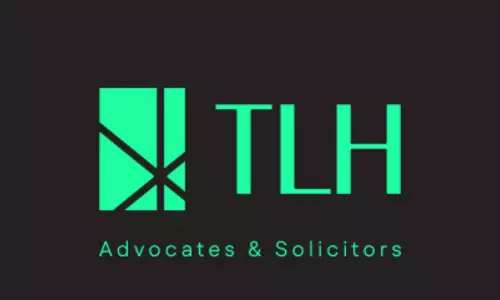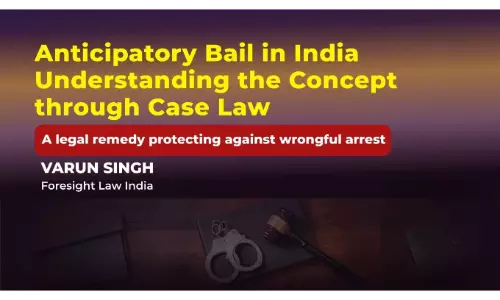Law Firm Articles
Delhi High Court Stays Outsourcing Move for Long-serving University Staff
The Delhi High Court has granted interim protection to a group of non-teaching staff employed on daily wages at Delhi Pharmaceutical Sciences and Research University (DPSRU), who challenged the University's decision to replace them with outsourced personnel through a manpower agency. The petition, W.P. (C) 14828/2025, was heard by Hon'ble Mr. Justice Prateek Jalan on October 10, 2025.Contentions of the PartiesThe petitioners, represented by Mr. Himanshu Yadav, argued that they have been working...
Treatment Of Operational Creditors Under Insolvency And Bankruptcy Code, 2016: An Analysis Of Recent Jurisprudence
The Insolvency and Bankruptcy Code, 2016 (“IBC”) was enacted with an objective to provide a streamlined and time-bound process for resolving corporate distress while balancing the interests of all the involved stakeholders, including creditors, debtors, and the broader ecosystem. The IBC classified creditors into financial creditors (“FCs”),[1] who lend or invest money in the debtor, expecting repayment along with interest or return, such as banks, financial institutions, etc. and operational...
Concept Of An 'Aggrieved Person' Under Section 61 Of The IBC: A Settled Law?
One of key recurring issues which comes across in insolvency litigation(s) across the Indian sub-continent seems to be the locus of the director/promoter/shareholder(s) of a corporate debtor (“Corporate Debtor”/ “CD”), especially when it comes to invoking Section 61 of the Insolvency and Bankruptcy Code, 2016 (“IBC, 2016”/ “Code”), as an aggrieved person. Now, the pertinent question which arises is what are the remedies available to a suspended director/shareholder/promoter of a CD once CIRP has...
Delhi High Court Sets Aside Lower Court Order Rejecting Plaint In Dr. Mahender Prasad's Estate Dispute
In a significant judgment, the Delhi High Court has set aside an order by a Single Judge that had rejected a plaint filed by the legal heirs of Smt. Satula Devi, the wife of late Dr. Mahender Prasad, a former Member of Parliament. The Division Bench of Justices Anil Kshetarpal and Harish Vaidyanathan Shankar held that a plaint cannot be rejected in part and that a court must take a "holistic and pragmatic" view of the entire pleading, rather than focusing on isolated prayers. The...
Skill Vs Chance Redefined? How Online Gaming Act, 2025 Shifts Legal Landscape
The passage of the Promotion and Regulation of Online Gaming Act, 2025 marks a watershed moment in India's gaming law landscape. For years, the question of whether a game is governed by skill or chance has occupied courts, regulators, and industry stakeholders alike. With this legislation, India now has a central, statutory framework that seeks to harmonise state-level inconsistencies and provide much-needed clarity. But does the Act end the debate? Or does it simply move the discussion to...
From IDEA To IPO: A Legal Playbook For Start-Ups Aastha Abhya
Every large business venture was once a mere idea. A seed that was sown, cared for, which then germinated and grew into what the world now sees as an enterprise. In today's competitive times, with regulatory requirements that can mire a founder in permissions, approvals, and compliance, it is not enough to merely possess an idea. To build that idea into an enterprise, one that takes into account all the legal steps and milestones involved, is almost a requirement today - one that can...
Green Audits: Framework For Sustainable Compliance
On 29 August 2025, the Ministry of Environment, Forest and Climate Change, Government of India (MoEF&CC) notified the Environment Audit Rules, 2025 (Rules) under the Environment (Protection) Act, 1986 marking a development in India's environmental governance. The Rules introduce a structured framework for independent environmental audits aimed at improving compliance, transparency and accountability in environmental regulation. The Rules prescribe setting up of an Environment...
Anticipatory Bail: Understanding Concept Through Recent Case Of MLA Jagan Moorthy
The concept of anticipatory bail is for every person who fears accusation, detention or arrest in lieu of a non-bailable offence. Anticipatory bail is a prior remedy and an application for bail for an offence in which the punishment is that of imprisonment. In the newly enforced Bhartiya Nagarik Suraksha Sanhita, 2023, Section 482 provides for anticipatory, whereas, earlier, Section 438 of the Criminal Procedure Code, 1973 provided for the same. The power to grant anticipatory bail is only...
Well-Known Trademarks In India: Discussion Through The Case Laws
Protection of trademarks in India is governed under the Trade Marks Act, 1999. A trademark plays a vital role in branding, identification, and market distinction. Some brand names or trade names become so deeply rooted in the minds of the public that consumers immediately associate a product or service with that particular name. In legal terms, such brand names are classified as “well-known trademarks” under Section 2(1)(zg) of the Trade Marks Act, 1999. These marks hold immense commercial...
Judicial Infrastructure And Courtroom Digitization, Viable Standards To Progressive Path Ahead
Digitization is an imperative in a country like India where traditional access to justice has been affected by increasing caseloads, and ever-rising demand. But merely applying templatized digital solutions may not be sufficient. To resolve mounting caseloads, procedural delays, and accessibility challenges, India needs a comprehensive reimagining of her judicial processes. While the pandemic prompted the Indian legal fraternity to adopt digital techniques, recent cases indicate the ...
Bail Under The Narcotic Drugs And Psychotropic Substances Act (NDPS Act)
The Narcotic Drugs and Psychotropic Substances Act, 1985 (“the NDPS Act”) is one of the strictest criminal laws in the country. Section 37 of the NDPS Act restricts the grant of bail in matters which involve commercial quantity of narcotic drugs or psychotropic substances. Commercial quantity refers to a large quantity of a narcotic/psychotropic substance above the threshold notified by the government for such substance. Section 37 of the NDPS Act makes bail conditional on what is often...
Alstom India Verdict: Navigating Shifting Sands Of Secondment Under GST Law
The taxability of employee secondment arrangements under the Goods and Services Tax (“GST”) regime has been a contentious issue, leading to significant litigation across India. Multi-national companies often second employees from overseas group entities to their Indian counterparts for a specified period as per business requirements. The salary payment to such seconded employees is made partly in India and partly by the overseas group entity. The payment made by the overseas group entity...













